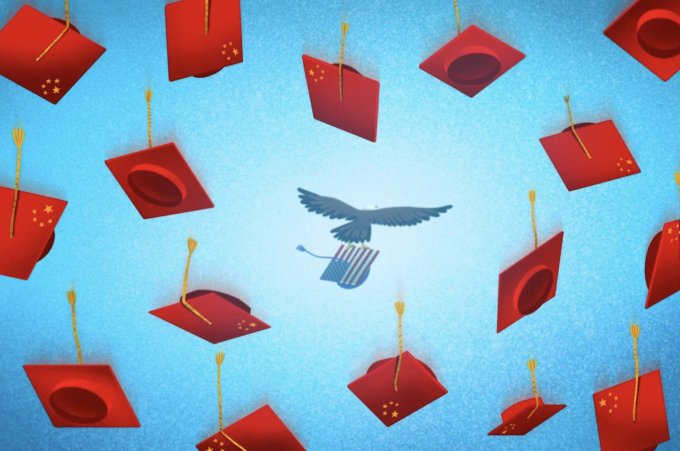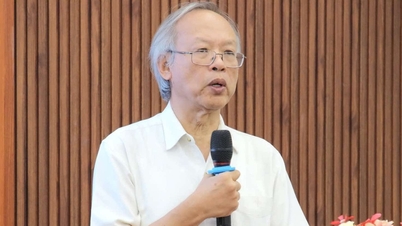Only about 10% of graduates from China's top two universities, Tsinghua and Peking, study in the United States, a sharp decline from about a decade ago.
In 1989, about 1,600 of the more than 2,200 students, or 70% of the elite university students, went to the US and stayed. The story was told by biologist Shi Yigong, then vice president of Tsinghua University, on CCTV in 2017. The popular choice for most international students is top schools in the US or UK.
Today, that has changed dramatically. One statistic shows that in 2022, only 7% of Tsinghua University graduates, both undergraduates and graduates, continued their studies abroad. Similarly, Peking University recorded 14% of its nearly 3,200 students going abroad for further studies. That’s half the number in 2017.
"In the past four years, most of the best students have chosen to stay in China, with only a few going abroad to study," said a physicist at Tsinghua University.
Tsinghua and Peking are China's top two universities, ranked 12th and 14th in the world respectively according to THE's 2024 university rankings. This shows that the domestic academic and employment environment is increasingly attractive to students with good academic records.

Illustration photo: SCMP
According to the Chinese Ministry of Education, from the time the country opened up in 1978 to 2021, about 8 million Chinese students have studied abroad. The Ministry considers this a very large number, strongly affecting both directions of the US-China flow. But now, some scientists working in the US are gradually feeling the absence of Chinese students.
According to Zhao Yiping, a physics professor at the University of Georgia in the US, in the past, his department welcomed more than half of its new students from China, but this year, that number can be counted on one hand, instead, there are students from developing countries such as Nepal and Bangladesh.
“We would rather work with Chinese students because, in general, they have a stronger academic background,” said Mr. Zhao.
The Covid-19 pandemic is said to have had a direct impact on this shift. But more importantly, some experts say, China is becoming a global science and technology powerhouse, a far cry from the start of the century. A June report by Nature Index , a global academic research and ranking organization, found that Chinese institutions were surpassing the US and Western countries in the number of scientific papers published.
“China is developing strongly in many academic fields. For example, if students are restricted from getting a computer science degree in the US, it is unlikely that they will seek alternative courses in Germany, the UK or elsewhere, because China is also a leading power and has many large technology companies,” said Shen Wenqin, associate professor at Peking University.
At the same time, China has been upgrading its industrial structure to develop into an advanced technology economy, thus creating many jobs for young technology experts.
"China no longer depends on the West for talent training like before," Professor Zhao affirmed.
Mr. Shen acknowledged that in the past, the best minds went abroad and most did not return, which damaged China's talent training system. Shen considered this shift positive.
However, many people are also concerned if this trend increases, because China's scientific development partly comes from the policy of sending young talents to study in developed countries and maintaining academic exchanges with the world.
Phuong Anh (According to SCMP )
Source link




![[Photo] Vietnam shines at Paris International Fair 2025 with cultural and culinary colors](https://vphoto.vietnam.vn/thumb/1200x675/vietnam/resource/IMAGE/2025/5/4/74b16c2a197a42eb97597414009d4eb8)































![[Photo] General Secretary To Lam receives Sri Lankan President Anura Kumara Dissanayaka](https://vphoto.vietnam.vn/thumb/1200x675/vietnam/resource/IMAGE/2025/5/4/75feee4ea0c14825819a8b7ad25518d8)




























































![[Video]. Building OCOP products based on local strengths](https://vphoto.vietnam.vn/thumb/402x226/vietnam/resource/IMAGE/2025/5/3/61677e8b3a364110b271e7b15ed91b3f)




Comment (0)